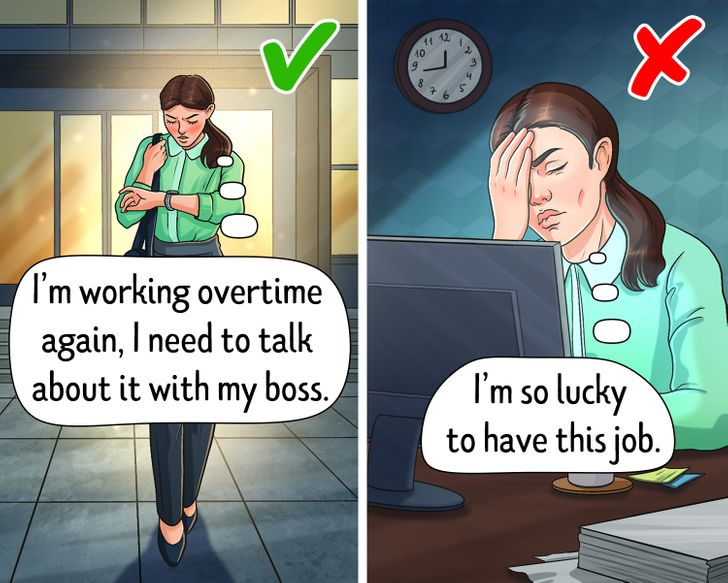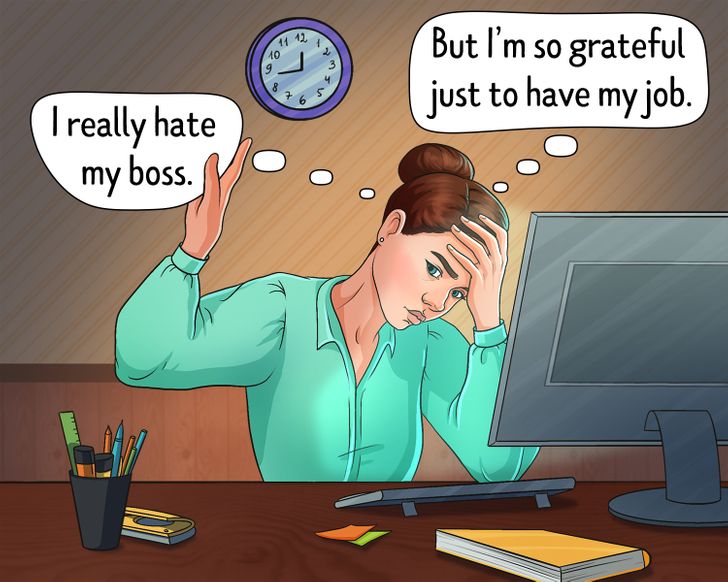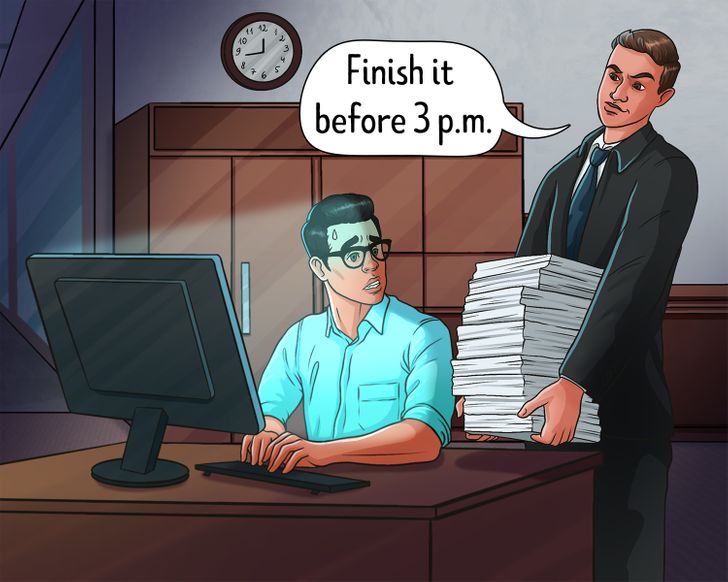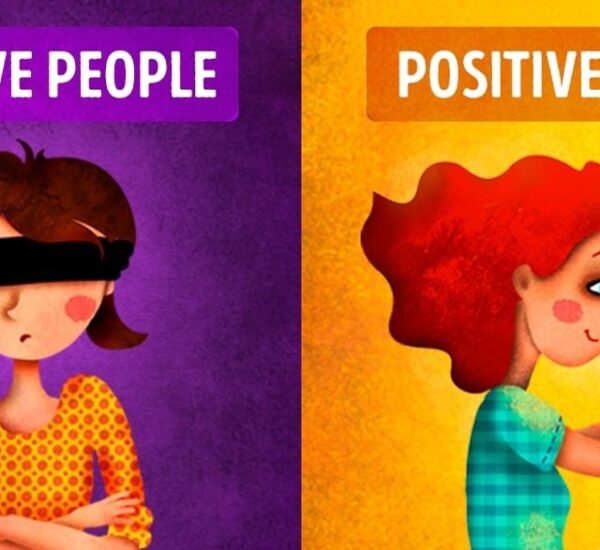Although scientists associate happiness with saying thanks, sometimes gratefulness has drawbacks. While gratitude for your work may be genuine and authentic, it is often inappropriate and is the result of pressure to be “thankful” for the job.
And that undeserved and obliged gratitude can backfire on us. We investigated this problem only to find that work-related gratitude has its downsides, affecting your everyday life.
It Makes You More Willing To Tolerate Things That Make You Unhappy

Many people have an example in their childhood of being forced to be thankful for something they don’t like.
You didn’t want to eat vegetables or anything, and your mom or dad would say, “Thank you to have food!” They taught us to value what we have and not to complain about it.
So we grew up and continued that way of thinking as adults at work, pushing ourselves to express gratitude, sometimes at the very least. “It could be worse,” you may say to yourself in a difficult situation.
But if you are too busy trying to be grateful for your work, you may not realize that it is really thankless and that it makes you feel stuck.
It’s Used To Mask Negative Emotions

When you force yourself to be grateful, you can start using a tactic of “gratitude bypassing” to avoid and suppress negative feelings.
You tell yourself that you are grateful when you really feel sad, stressed, anxious, or tired. And you may be missing the warning signs that should alert you that something is wrong.
This is obviously unhealthy and will not allow you to see the positive effects of genuine gratitude while experiencing the negative aspects of emotional avoidance. Over time, negative feelings will appear, probably more intensely.
By replacing these feelings with forced gratitude, you are also neglecting how they might motivate you to improve your situation.
It Makes You More Vulnerable To Your Boss

Employers can easily take advantage of displaced gratitude, either to manipulate workers into overworking or to “cut costs,” using it as an excuse to fire or pay less.
They know that their employees will not complain or quit because they fear they will not find a new job.
When people are grateful for the simple fact of having a job, it can dissuade them from standing up for their real rights.

All of this leads to overwork, increased stress, and dissatisfaction with work and life. To avoid this, remember that you don’t owe your employer anything – you shouldn’t be grateful just for “allowing yourself” to work for them.
What job do you have? Do you like or would you like to change something?


